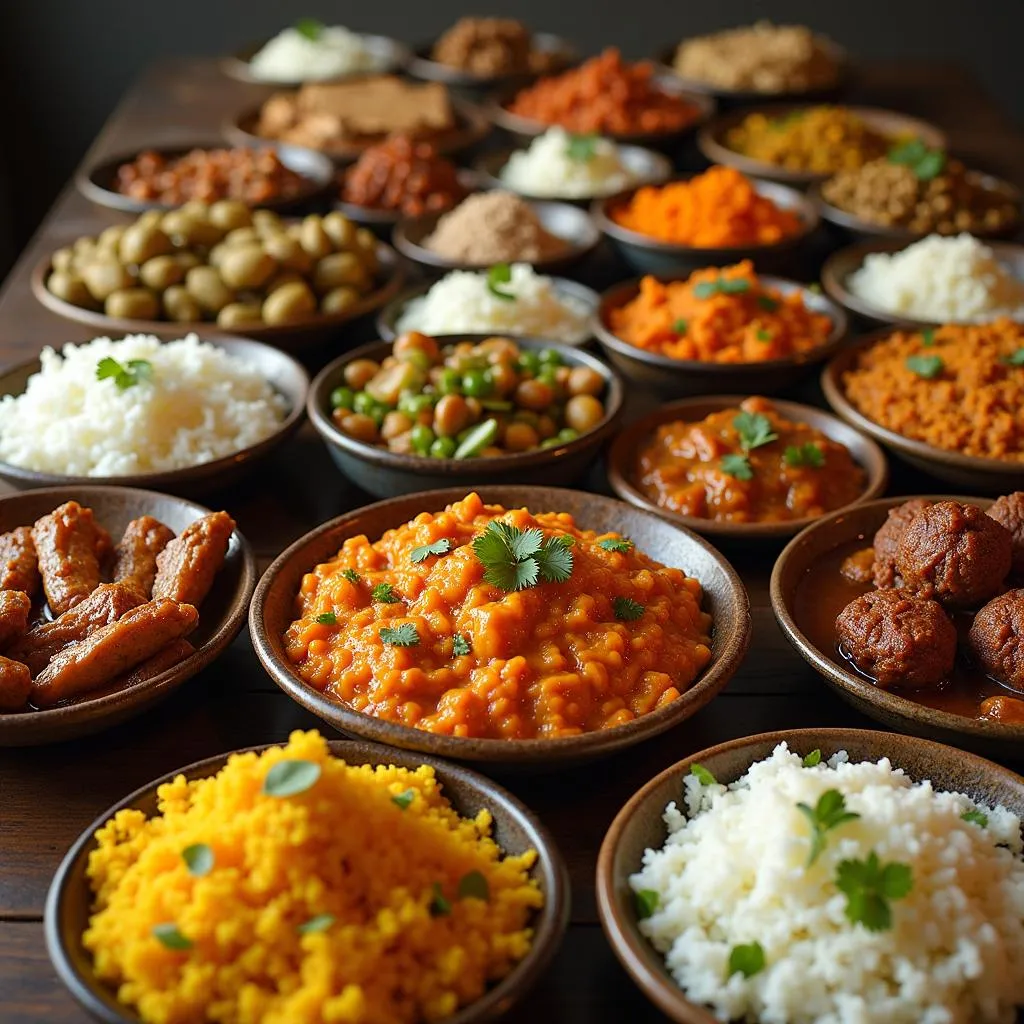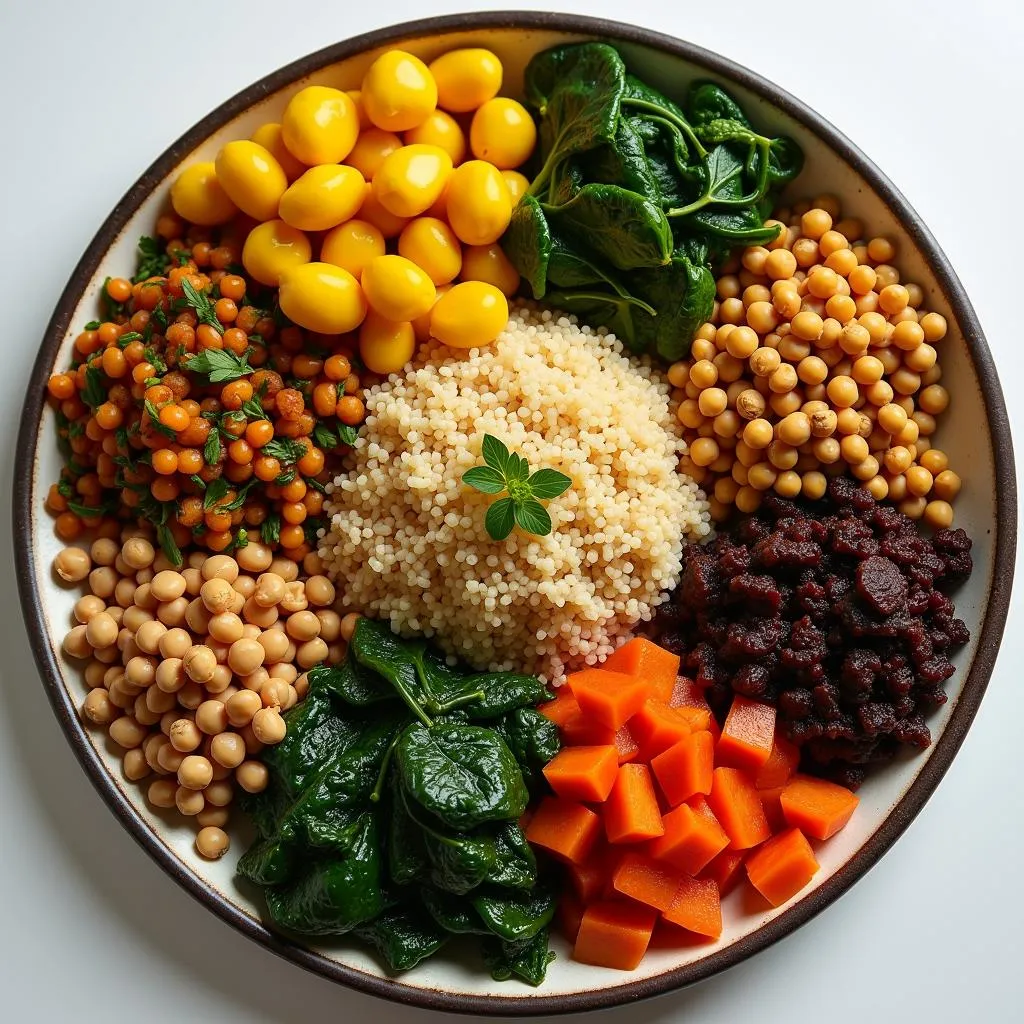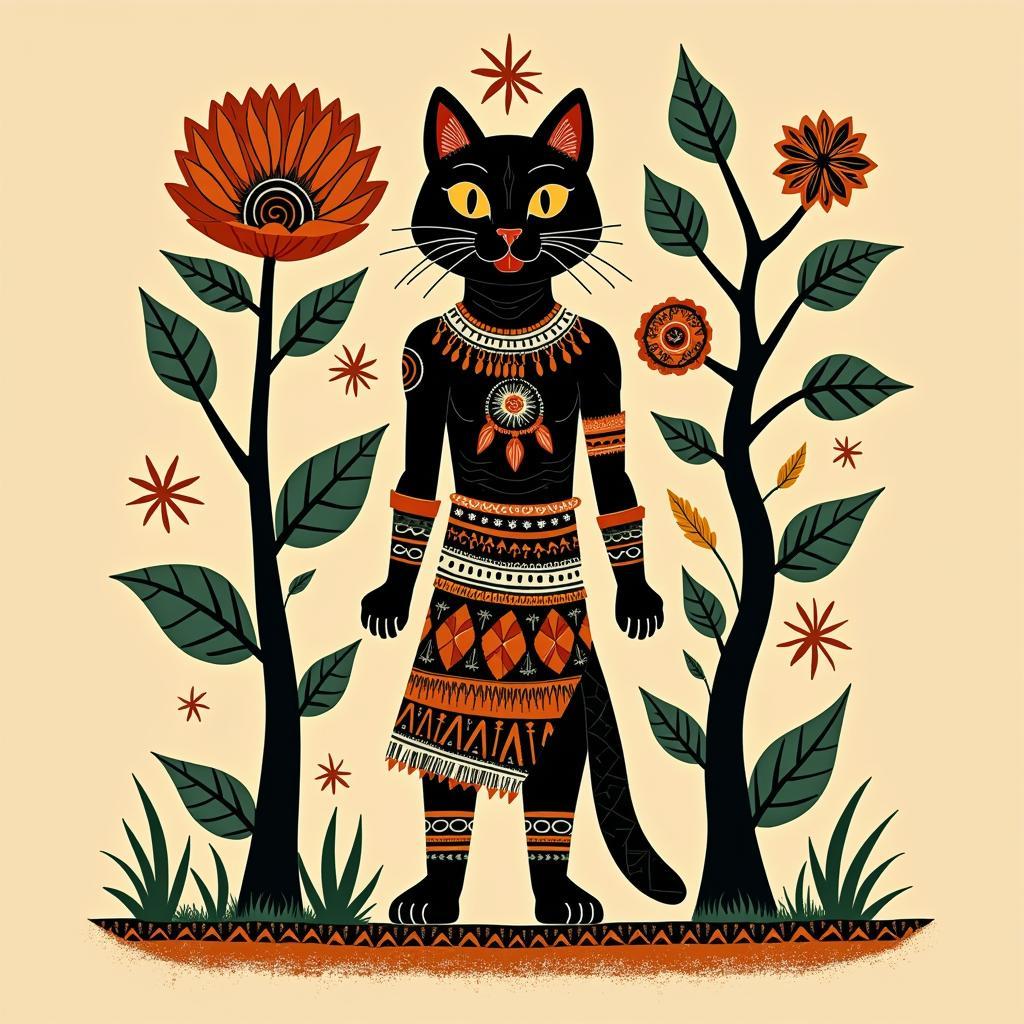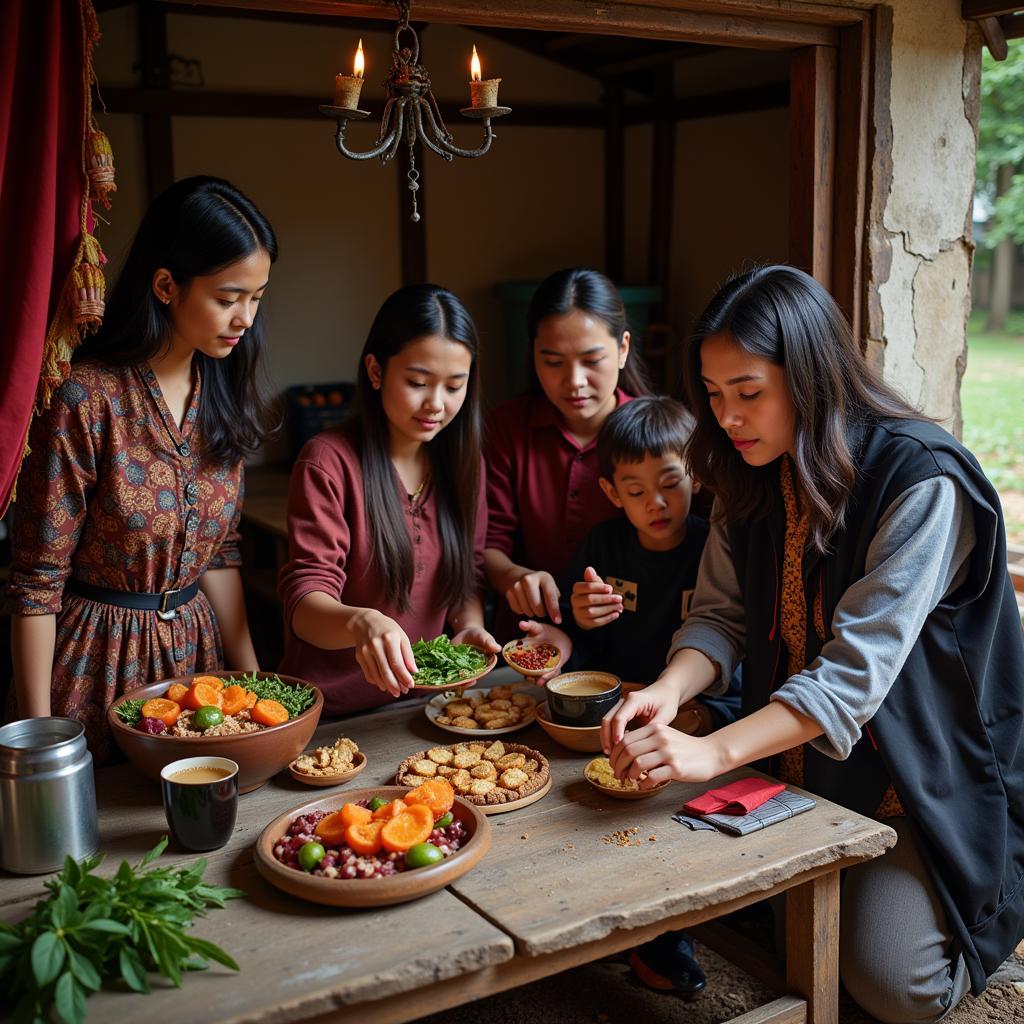The Heart of the Home: Exploring the Rich Culture of African Dinner
The sights, sounds, and especially the tastes of an African Dinner offer a unique window into the continent’s diverse cultures. More than just a meal, dinner is a time for family and friends to connect, share stories, and celebrate their heritage through time-honored traditions and recipes passed down through generations.
A Tapestry of Flavors: Regional Variations in African Dinner
The beauty of African cuisine lies in its incredible diversity. Each region boasts its own signature dishes and culinary traditions, shaped by geography, climate, and cultural influences.
West Africa: A Symphony of Spice
West African dinners are a vibrant celebration of bold flavors and aromatic spices. Imagine savoring the rich peanut stew, Maafe, originating from Mali, or indulging in the fiery heat of Jollof Rice, a beloved dish with roots in Senegal and Gambia.  West African dinner table spread
West African dinner table spread
East Africa: Where Cultures Collide
East African dinners reflect a fascinating blend of Arab, Indian, and indigenous African flavors. Picture yourself enjoying a plate of Ugali, a staple maize porridge, alongside Nyama Choma, succulent grilled meat, a favorite in Kenya.
North Africa: A Mediterranean Flair
Influenced by its proximity to the Mediterranean, North African dinners feature fragrant tagines, slow-cooked stews brimming with spices like cumin, coriander, and saffron. Imagine the aroma of freshly baked bread, perfect for scooping up flavorful dips like hummus and baba ghanoush.
Southern Africa: A Melting Pot of Traditions
Southern African dinners are a fusion of indigenous, European, and Asian influences. One might find themselves enjoying a hearty Bobotie, a spiced minced meat dish with Malay roots, or indulging in Biltong, a cured meat snack that speaks to the region’s history.  South African family enjoying dinner outdoors
South African family enjoying dinner outdoors
Beyond the Plate: The Cultural Significance of African Dinner
Across Africa, dinner is rarely just about the food. It’s a social event, a time for families and communities to bond and strengthen ties.
- Communal Dining: In many cultures, meals are shared from a common plate, signifying unity and togetherness.
- Respect for Elders: Elders are often served first as a sign of respect, and younger generations may be involved in serving and cleaning up.
- Storytelling and Music: Dinnertime often transforms into a time for storytelling, singing, and sharing laughter, preserving traditions and passing down knowledge.
Experiencing African Dinner: Tips for First-Timers
- Come Hungry and Open-Minded: Be prepared to sample new flavors and embrace the spirit of adventure.
- Embrace the Communal Atmosphere: Don’t be afraid to share dishes and engage in conversation with those around you.
- Ask Questions and Learn: Show an interest in the cultural significance of the dishes and customs.
FAQ: Your Questions About African Dinner Answered
What is a typical time for dinner in Africa? Dinner times vary but typically fall between 7 pm and 9 pm.
Are utensils used in African dining? While utensils are becoming more common, it’s not unusual to eat with your hands in some cultures. Always follow your host’s lead.
What are some popular drinks served with African dinner? Popular beverages include water, juice, tea, and local beers like ginger beer or palm wine.
Are there vegetarian options available in African cuisine? Absolutely! Many dishes center around vegetables, legumes, and grains, making it easy to find delicious vegetarian options.  African vegetarian dinner platter
African vegetarian dinner platter
What is the best way to learn more about African cuisine? Explore local African restaurants, attend cultural festivals, and seek out cookbooks and online resources to deepen your knowledge.
Want to explore more about African food and culture? Check out these articles:
Need help planning your African culinary adventure? Contact us at +255768904061, kaka.mag@gmail.com, or visit us in Mbarali DC Mawindi, Kangaga, Tanzania. Our team is available 24/7 to assist you.

 embodies much more than a simple musical instrument. It represents a rich tapestry of culture, history, and tradition across the African continent. From celebratory ceremonies to spiritual rituals, the drum holds a central place in many African societies. This article will delve into the significance of the African drum emoji,…
embodies much more than a simple musical instrument. It represents a rich tapestry of culture, history, and tradition across the African continent. From celebratory ceremonies to spiritual rituals, the drum holds a central place in many African societies. This article will delve into the significance of the African drum emoji,…
